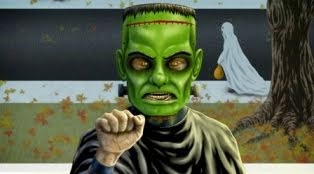Thursday, March 2, 2017
BLAXPLOITATION MONTH: Shaft (1971)
“Sweetback” is generally accepted as being the first blaxploitation movie but “Shaft” is the film that crystallized the genre in the public's mind. Based on a novel written by a white man, and rumored to be originally intended for a white lead, the film's enormous success would prove to the major studios that there was an audience for black-starring movies. That same success would also lead to a number of low budget imitators and would-be successors, effectively birthing the blaxploitation genre. Its music and general sense of style would be hugely influential, even beyond the seventies. Where “Sweetback” was weird and experimental, “Shaft” is slick and commercial. Yet it still crafted a hero who was proud of his blackness and succeeded against his white oppressors, making it as a landmark film.
John Shaft is a private detective working in the seediest parts of New York City. His contact with the NYC police department warns him that the mob is looking for him. He's right and, after some violent confrontations, Shaft is recruited by Bumpy Jonas. A Harlem based black gangster, Bumpy's daughter has been kidnapped. Jonas suspects either a group of black militants or the Mafia. As Shaft investigates the case, he finds himself making unexpected allies and getting in danger. The truth is, when there's danger all about, Shaft is the cat that won't cop out.
“Shaft's” roots as a paperback potboiler are all too evident. The film gladly trades in the troupes of the hard-boiled detective story. That includes a needlessly convoluted plot. The story essentially boils down to a P.I. retrieving the daughter of a black crime boss, kidnapped by a white crime boss. In the spirit of Raymond Chandler, John Shaft has to investigate a number of false leads and bullshit turns. He stumbles into a rough alliance with a group of black militants. Eventually, he realizes that he's being manipulated by both Bumpy and the white mobsters has to clean up this mess on his own. You're supposed to be drawn into the various twists and turns but the obvious conclusion “Shaft” is heading towards does make the audience a little impatient.
It's not too big a problem though. As in Chandler and multiple noir stories, the film is less about plot and more about the characters. One character in particular. This is the film that introduced John Shaft to the world. Obviously designed to be a black counterpart of James Bond or Mike Hammer, Shaft is indeed one cool mutha-shut-yo-mouth. Like Bond, the women find Shaft irresistible, meaning he gets laid a lot. He's a tough man of action, throwing attackers out windows or gunning down baddies. (Like Bond and Hammer, Shaft also gets the shit beat out of him several times.) What really distinguish John Shaft from other action heroes is the laconic sense of humor and style Richard Roundtree brought to the part. Shaft cracks jokes with his police contact, giving him a gentle ribbing. Unlike Bond, he's not dropping one-liners during the action. When the shots start being fired, he's all action. Moreover, Roundtree has that implacable sense of charisma. Just everything he does is cool.
Though often considered a landmark of action cinema, “Shaft” is not as action packed as contemporary films like “Bullett” or “Dirty Harry.” Instead, it remains true to the detective genre for most of its run time. Shaft prefers investigating leads to cracking heads. There's a few burst of action throughout the film. Such as the rumble in the apartment building near the beginning or a shoot-out on a fire escape. Mostly, the movie remains muted until its last act. This is when Shaft and his black militant allies take the fight to the mob. The set-up to the sequence is deliberate, showing the heroes putting their plan in action. When the violence erupts, its explosive. Shaft crashes through a window and ventilates a mafioso. The film ends almost immediately after the mobsters are vanquished, leaving the audience with a thrill before sending them out the door.
While “Shaft” is a pretty famous movie, its soundtrack is probably more well known. How often have parodies and homages introduced a bad-ass character with a funky bass line? The irresistible awesomeness of Isaac Hayes' theme song and score was such that the film was a breakthrough charts hit and even won an Academy Award. While the soundtrack is indeed fucking great, the sense of style it lends the movie is what truly makes it magnificent. Long montages of Shaft walking around New York, trying to dig up information, become utterly captivating when paired with Hayes' powerful soul chords. It creates an atmosphere that is grounded and gritty but also effortlessly cool. Which is just right for a bad dude like John Shaft.
It's clear to see why black audiences were so refreshed by “Shaft” in 1971. This is a film where a black hero triumphs over his enemies, most of who just happen to be voices of white authority. The film even deliberately re-purposes iconography of sixties racial unease, when the black heroes turn fire hoses on white enemies. However, it is interesting that Shaft himself is only allied with black militants, not one himself. I'm sure someone with a more intimate understanding of America's racial history could delve into that. Stepping back from the social context, the film is a satisfying pulp experience, a compelling look at a gritty 1970s Manhattan, and introduced a character that remains a paragon of coolness. I can dig it. [7/10]
[THE BLAXPLOITATION CHECKLIST: 10 outta 12]
[X] Afros or Sideburns
[X] Brothels or Pimps*
[] Churches or Pastors
[X] Funky Soundtrack
[X] Homophobic Caricatures
[X] Inner-City Setting
[] Night Club Act
[X] Plot Involving Drugs or Organized Crime
[X] Racist Authority Figures
[X] Sticking It to the Man
[X] Sweet Love Makin'
[X] Use of Street Slang
*Bumpy gets called a pimp repeatedly.
Subscribe to:
Post Comments (Atom)







No comments:
Post a Comment